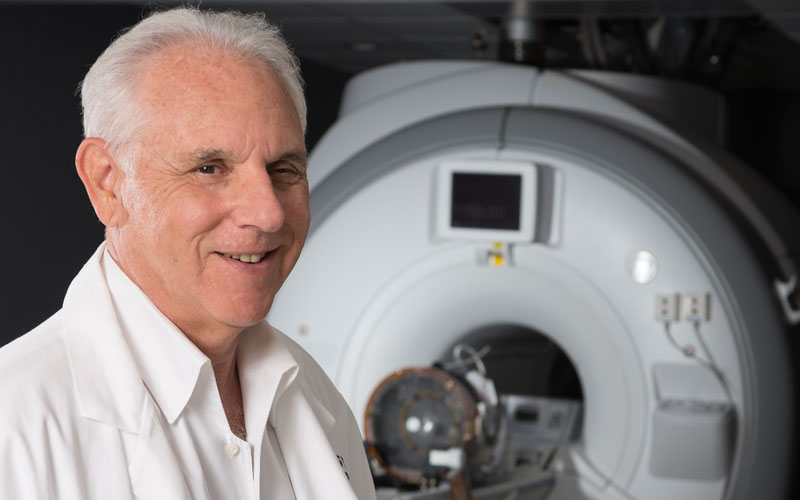Anyone who has Parkinson’s disease – or has a friend or relative with the affliction – knows about the tremors that most often accompany that disease.
So, just what is “focused ultrasound” and how does it work?
Kassell says it’s a technology that has the power “to transform the treatment of many devastating medical disorders, including Parkinson’s disease, Alzheimer’s disease, OCD, depression, epilepsy, brain tumors and others,” by heating tightly focused spots in the brain.
That’s a bold pronouncement, but Kassell is so convinced of the efficacy and potential of focused ultrasound that in 2006 he became the founder and chairman of the Focused Ultrasound Foundation.
According to the “My Cleveland Clinic” website, in focused ultrasound procedures, “over 1,000 highly focused beams of ultrasound are concentrated on a specific area in the brain’s thalamus. The thalamus is a relay station for motor and sensory signals in the brain.
“The heat from the ultrasound causes a tiny burn or lesion on the targeted spot on the thalamus. Creating the tiny burn or lesion interrupts the abnormal activity, which relieves the tremors associated with the disease.”
The Michael J. Fox Foundation adds, “Focused ultrasound does not require surgical incisions or general anesthesia. It’s typically a one-time procedure that produces immediate symptomatic benefit.”
To be clear, the procedure does not cure Parkinson’s, but effectively treats one of the main symptoms.
About 80 percent of Parkinson’s patients experience tremors, and while tremors do not necessarily affect a patient’s life expectancy, they do interfere with quality of life and be downright debilitating.
For example, tremors can make formerly simple tasks such as cutting meals into bite-size portions and then raising that food up to the mouth a frustrating, if not impossible, task.
Burning brain cells to stop tremors might seem like a drastic and risky undertaking but Kassell reassuringly explains that “the way the target in the brain is selected is based on an atlas or an anatomical map of the brain.
“Then the correct position for the lesion is confirmed by heating the area to a moderate degree to see if it produces any adverse effects like weakness and/or the desired reduction in the symptoms.
“If it doesn’t produce the desired effect, the target can be relocated and fine-tuned before the temperature is raised again to make the final lesion, which will then destroy the cells.”
Magnetic resonance imaging (MRI) is used in the planning stages, providing the surgeon with clear and highly detailed pictures to help pinpoint the area of the brain to treat.
Since retiring from neurosurgery practice and his post a professor of neurosurgery at the University of Virginia in Charlottesville, Kassell spends the bulk of his time crisscrossing the country promoting the use of focused ultrasound to colleagues and audiences to help more people get the benefit of this procedure.
“It doesn’t take an enormous leap of faith,” says Kassell, “to appreciate that if you can treat an area deep in the brain in an awake patient, through the intact scalp and skull with extreme precision and accuracy, it will also work more easily in areas outside the brain in more forgiving, less sensitive locations such as the breast or liver.”
The basic focused ultrasound technology was first introduced in the 1950s, but until recently it has predominantly been used to treat prostate cancer in men and uterine fibroids in women.
New uses for focused ultrasound treatments have been slow to catch on.
One reason for slow acceptance of this remarkable treatment in the U.S. is the fact that “hardly any insurers will pay for it,” according to STAT.com.
Kassell says just over 15 sites nationwide currently offer focused ultrasound for brain cell treatments, including one private clinic in Del Ray Beach and another site that is soon to begin clinical cases at Baptist Hospital in Miami.
Kassell is keen to spread the word on what he thinks is possible with this technology. He’ll be speaking at the Quail Valley next Wednesday as part of the club’s speaker series.

